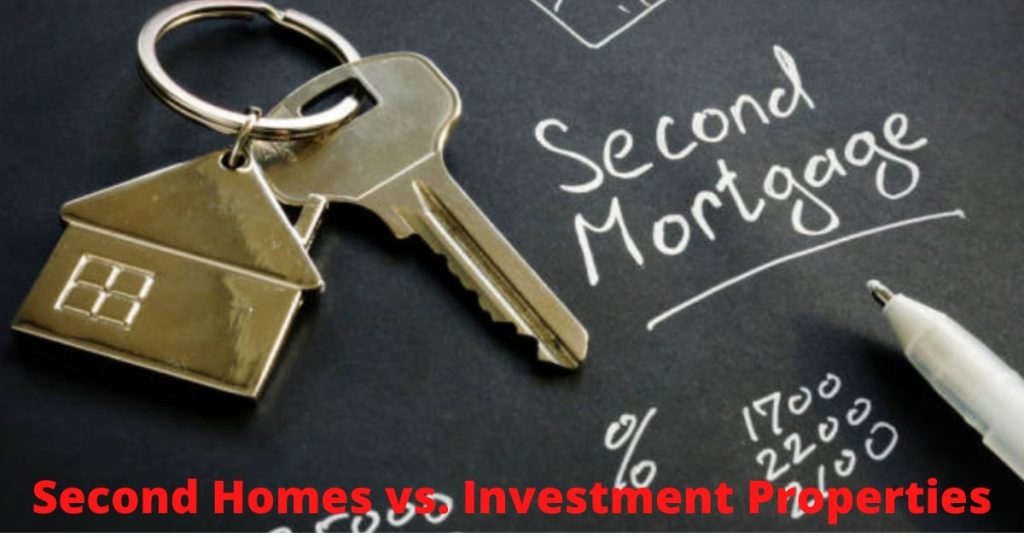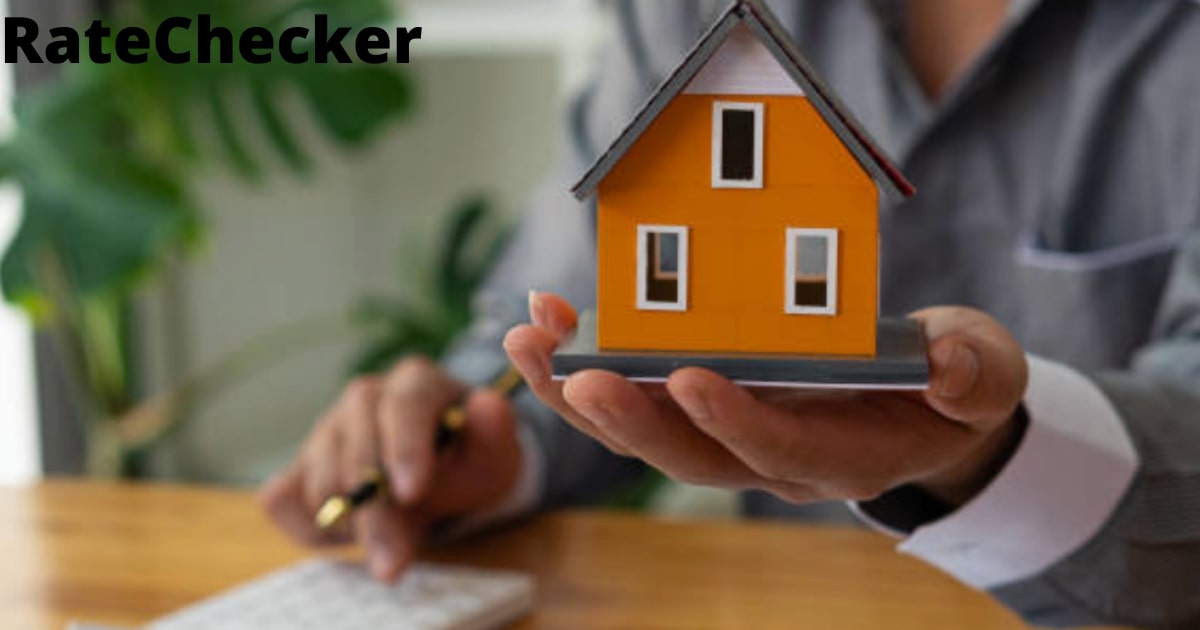Buying a second home with a mortgage can be very easy if you can differentiate between second homes vs investment properties. Most of us may mix that both have the same background. But never, not the same. In short, investment properties claim your tax deduction by claiming operating expenses and ownership. On the other hand, a second home is a one-unit property that you want to live in or regularly visit for at least part of the year and can also generate rental income and tax deductions for expenses. So let’s describe in-depth second homes vs investment properties.
What Is a Second Home?
A second home is a home that you want to occupy some part of the year in addition to an initial place. Typically, a second home is kept as a vacation home, although it can also be a property you regularly visit, such as a condo in a town where you often run a business.
To qualify for a second home loan – the property must be located in a resort or leisure area near a mountain or sea or at a certain distance from the borrower’s primary residence.
Second home mortgage has lower regular interest rates than investment-property loans and usually include a second-home rider with a mortgage.
- The debtor will occupy the property and use it only as the borrower’s second home.
- That property will be kept available to the borrower for exclusive use and enjoyment.
- The property may not be subject to any timeshare arrangement or rental pool.
- The property cannot be subject to any agreement for which the borrower has to lease the property or give control over the possession and use of the property to a management firm (or any other person).
What Is an Investment Property?
An investment property is a real estate property purchased to earn a return on investment through rental earnings, the future resale of the asset, or both. The property or home may be held by an investor, a group of individuals, or a corporation.
An investment property can be a long-term undertaking or venture or a short-term investment. With the latter, investors will often flip, where real estate is bought, rebuilt, or renovated and sold off at a profit in a short period.
The term “investment property” can also describe future assets such as industry, securities, land, or other assets that investors purchase for other purposes.
- An investment property is bought to acquire a return through rental income, the future resale of the property, or both.
- Features can represent a short- or long-term investment opportunity.
- Investment property is not the primary residence or second home, making it difficult for investors to secure financing.
- The sale of investment property must be reported, and there may be capital gains, which may have tax implications for investors.

Mortgages Diverge for Second Homes vs Investment Properties
Getting approval for an investment property loan vs a second home mortgage is usually cheaper and more manageable. However, mortgage loan requirements for both types of property are more stringent than for initial housing.
Mortgage Interest Rate
“Occupancy” can significantly impact the mortgage interest rate you offer. There are three mortgages related to mortgage loans: primary home, secondary home, and investment. Lenders charge higher interest rates for second home vs investment properties, as borrowers may move away from such assets.
Homeowners will prioritize their primary homes if difficult financial times hit, and lenders can mark your interest rate 0.50% to 0.875% points higher than a primary home. The rate difference can be more significant if you make a low down payment with a low credit score.
Down Payment
Lenders require higher down payments for the investment property than for the second home to compensate for the additional risk of default. The typical minimum second home down payment is 10%.
Lenders may require a 15% to 20% down payment to purchase a single-family home investment property. However, if you’re buying a two- to four-unit multi-family investment home, you’ll need to save up to 25% for a down payment.
Homeowners who wish to live in a unit of a multi-family home for at least 12 months may be eligible for a loan supported by the Federal Housing Administration (FHA) with a 3.5% reduction. An additional bonus: income from rented units can be used to qualify. The US The Department of Veterans Affairs (VA) guarantees no down payment loans to eligible military borrowers to purchase property up to seven units as long as the borrowers remain in one unit.
Qualification Requirements
Creditors typically set a higher bar to qualify for a second homes vs investment properties mortgage than a primary residence. Many creditors require a minimum credit score of 720 to buy a second home and 700 for an investment property if you make a minimum down payment acceptable. It would be best if you had enough cash with them to cover the costs of the house you are buying for up to 6 months.
You need to prove that you have enough income to pay for second homes vs investment properties. In most cases, the rental income of an investment property cannot be used to qualify unless your tax returns show that you have background managing the property. Check on our essential mortgage tips or strategies that help to get a mortgage loan.
Rental Income
You may be able to add up to 75% of the expected rental income to pay the mortgage on your purchased investment property. However, lenders offering this option may require a special evaluation that analyzes the relative rental value in your area.
The need for additional valuation makes an investment property valuation more expensive than a regular valuation. The lender may have to prove that you have operated rental properties in the past to give you credit for potential rental income.
An exception to this rule is the FHA loan program. FHA guidelines allow FHA-approved lenders to apply the expected or actual rental income to a two- to the four-unit property for your total income, even if you have no landlord experience. You must be in one of the units for at least 12 months to be eligible for this financing option.
Tax Considerations When Changing a Second Home to an Investment Property
(The summary below is for informational purposes only. Please consult with a qualified tax professional or lawyer to understand your tax situation.)
In the United States, homeowners must report all income earned on the rented property for 15 days or more. So, for example, if you rent your home for two weeks (or 14 days) a year, you do not have to report earnings, but if you lease it for 21 days, you will say it. Check on advantages of mortgage loan.
The good news is that there are considerable concessions you can make to run an investment property. The IRS treats it as a business and allows you to take business discounts. Some common deductions include:
- Mortgage interest
- Cost of maintaining the property
- Property taxes
- Home insurance
- Utility costs
- Advertising
- Commuting costs if you visit the property for business purposes
- Cost of keeping an office to maintain your rental property
There are tax benefits to consider when selling property. In the United States, by living in an investment property as at least two primary residences in the last 5-Years (this does not have to be continuous), you may take advantage of the generally available capital gains exclusion to sell an initial residency. When you sell your initial residence, you can deduct up to $250,000 ($500,000 if you file for marriage jointly), remembering that this exclusion is reduced to reflect rent, vacation home, or other ‘other’ period. – Qualified use. On the other hand, ‘ For a second home or investment property, there is no such exclusion in case of capital gain from the sale.
A quick note to claim depreciation as an expense
In both the United States and Canada, you may be allowed to reduce your rental income by claiming depreciation expense (or a capital expense allowance in Canada) over the useful life of the rental property. By doing this, however, you may be subject to a recapture payment, so be sure to seek appropriate advice before doing so.
As you can see, the consequences of second homes vs investment properties conversion tax are complex and require the assistance of a qualified tax professional.
More critical considerations about second homes vs investment properties
While mortgage and tax consequences are the most significant consideration, you should also consider the following before converting a second home into a rental property:
- Insurance
- Building codes
- By-laws and zoning restrictions
- Business licenses or permits
Converting Second Home into Rental Property
As you can see, it is possible to convert a second home into an investment property, or more specifically, a second home into a rental property. Still, it would be best if you considered several factors for second homes vs investment properties. Your creditors, insurers, tax authorities, and other government departments have a vested interest in owning and using your property.
Importantly, discuss converting your second home into an investment property with your tax advisor and attorney before switching. If you are thinking to buy a second home, check on our tips.
Generated with WriterX.ai — best AI tools for content creation

